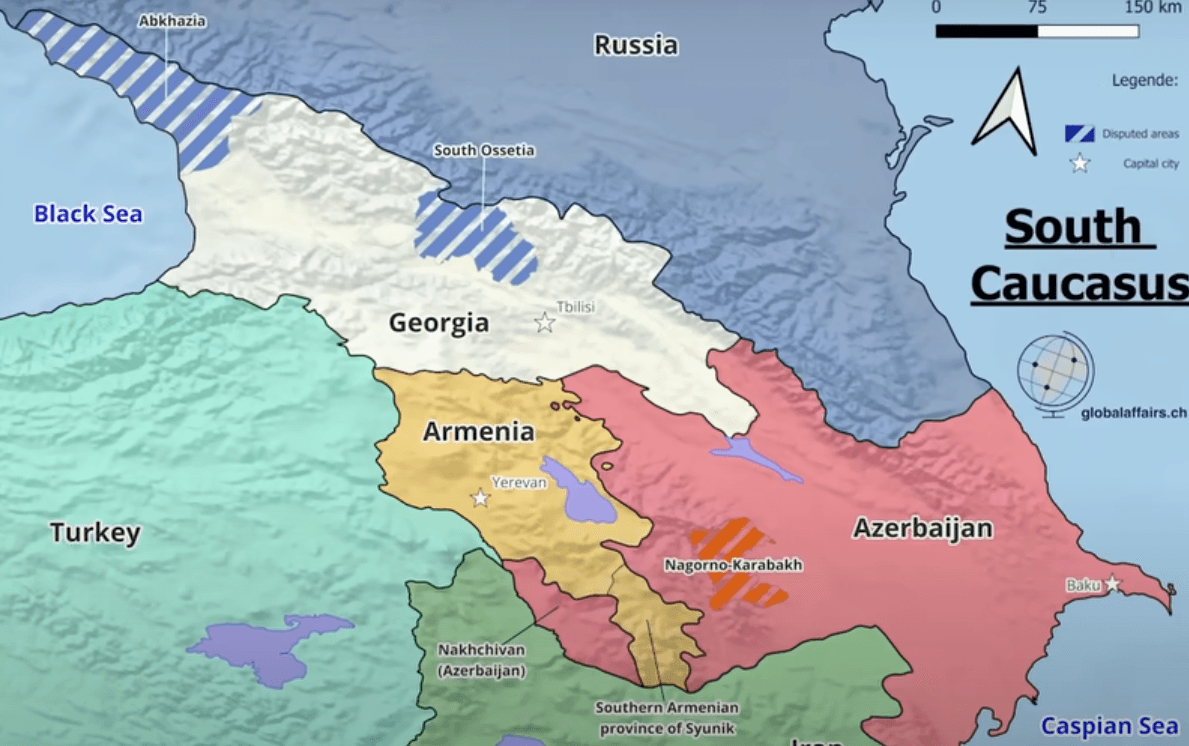RUSSIA'S NEW FRONT IN THE WAR, AZERBAIJAN, GEORGIA
🔥 South Caucasus on Edge: Georgia, Azerbaijan, and the Emerging Anti-Russia Axis
Written by: ECAAU
Date: July 2025
🌍 Historical Shadows and Present Tensions
Georgia and Azerbaijan, two strategically located nations in the South Caucasus, have long lived under the shadow of Russian influence. Georgia was forcibly incorporated into the Soviet Union in 1921 and has since endured multiple Russian incursions — most notably the 2008 war and the ongoing occupation of Abkhazia and South Ossetia.
Azerbaijan, while maintaining a more pragmatic relationship with Moscow, has increasingly distanced itself from Russia following its 2023 victory in the Nagorno-Karabakh conflict, which exposed Russia’s waning influence in the region.

🇬🇪 Georgia’s Democratic Resistance
In late 2024 and early 2025, Georgia erupted in mass protests against its ruling party, Georgian Dream, which has been accused of authoritarianism and pro-Russian leanings. The government’s decision to halt the EU accession process triggered widespread unrest, with tens of thousands rallying under EU flags and demanding democratic reforms.
Even President Salome Zurabishvili joined the protests, refusing to recognize the legitimacy of the October 2024 elections, which international observers deemed fraudulent.
🇦🇿 Azerbaijan’s Strategic Pivot
Azerbaijan has quietly but decisively shifted its geopolitical posture. While tensions with Russia remain below open conflict, Iran’s threats and Russia’s inaction during regional crises have pushed Baku closer to Israel, Turkey, and the United States.
Israel: Azerbaijan has maintained strong military and intelligence ties with Israel for over 30 years.
Turkey: As a fellow Turkic nation, Azerbaijan enjoys deep cultural and defense cooperation with Ankara.
United States: Washington sees Baku as a bulwark against Iranian and Russian influence in the Caspian region.
🤝 A New Alliance in the Making?
If Russia escalates tensions with Azerbaijan — for example, over the Zangezur corridor or energy routes — it could trigger a de facto alliance between Georgia and Azerbaijan, united by shared interests:
Preserving sovereignty
Countering Russian expansionism
Deepening ties with Western and regional powers
Such an axis would likely receive support from Israel, Turkey, and the U.S., all of whom have strategic stakes in limiting Russian and Iranian influence in the region.
🧠 Final Reflections
The South Caucasus is no longer Russia’s uncontested backyard. Georgia’s democratic uprising and Azerbaijan’s strategic realignment suggest a tectonic shift in regional power. If Moscow continues to alienate its neighbors, it may soon face a coordinated front — not just diplomatically, but militarily.
The question is no longer whether Georgia and Azerbaijan will resist Russian pressure — but how far they’re willing to go, and who will stand with them.